OnePlus 12R review: The return of the flagship killer
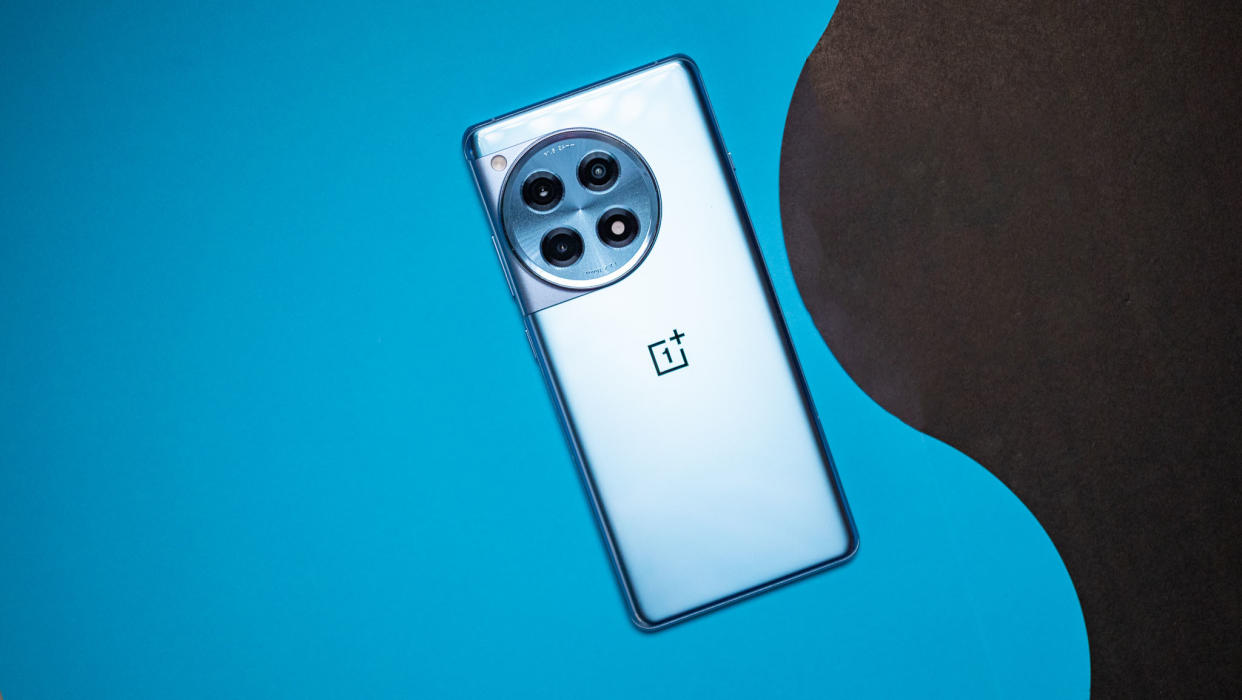
The OnePlus 12 is a fabulous choice if you want to buy a flagship in 2024. It has everything you need in a high-end phone: a sublime design, a display that goes up to 4,500 nits, outstanding hardware that's great for gaming, battery that lasts over a day, and fast charging tech. But it's the cameras where there's a noticeable difference from previous years, and you get versatile lenses that take stellar photos and videos.
But what if you don't want to spend that much money? That's where the OnePlus 12R comes in; the phone has a lot of the same features as the OnePlus 12, but it costs a lot less, giving you a much better value. OnePlus has been making phones in the R series for four years now, but these devices have been exclusive to India and China — thankfully, that's changing this year. The OnePlus 12R is launching in the same markets as the OnePlus 12, including North America and the U.K., and this is absolutely the right move by OnePlus.
OnePlus was reluctant to launch the R series globally in the past as it didn't want to cannibalize sales of its flagships, but there's a wider gulf between the OnePlus 12 and 12R this time, so the device is getting a global release. And that's a good thing, because the OnePlus 12R does enough to solidify itself as one of the best mid-range phones currently available, and it manages to hold its own against phones that cost several hundred dollars more. Say hello to the new flagship killer.
OnePlus 12R: Price and release date
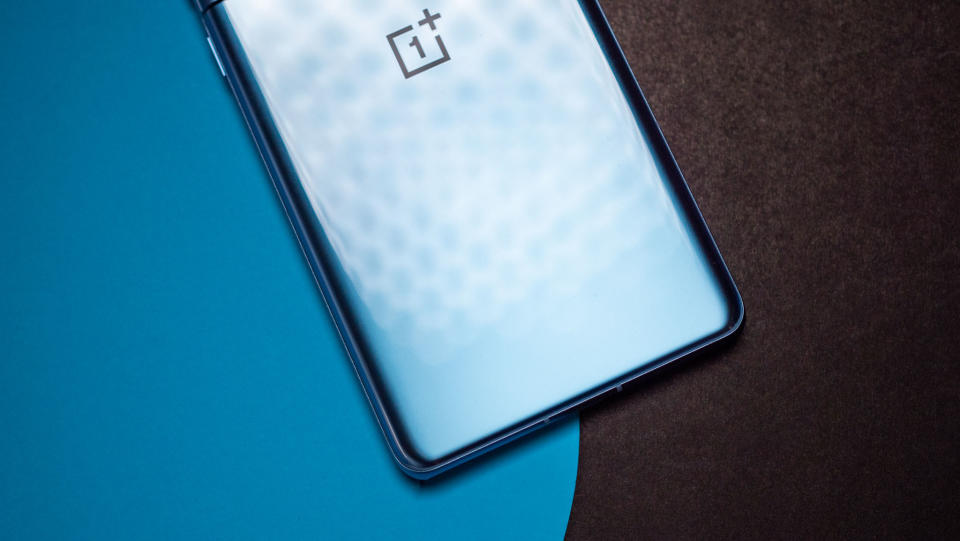
OnePlus unveiled the OnePlus 12R at a launch event in India on January 23, and the phone went on sale globally starting February 5. In addition to India, the phone is launching in over 30 global markets, including the U.S., U.K., and Germany. The 12R is available in two configurations: a base model with 8GB of RAM and 128GB of storage, and a higher storage variant with 16GB of RAM and 256GB of storage.
You can also choose between two color variants — Iron Grey and Cool Blue — and having used the latter, I highly recommend getting the blue version. Here's what you'll end up paying for the device around the world:
OnePlus 12R (8GB/128GB): $499 / ?39,999
OnePlus 12R (16GB/256GB): $599 / £649 / €699 / ?45,999
Although OnePlus is launching the 12R globally this time, it isn't bringing all color options and storage configurations to all regions. Buyers in the U.K. are limited to the 16GB/256GB model in Iron Grey, and the 8GB/128GB version is only launching in the U.S. and India — it isn't headed to Europe.
Talking about India, the 12R is a particularly good value in the country, debuting at just ?39,999 ($480). This undercuts most mid-range phones, and you get a great overall value. OnePlus is being aggressive in North America as well, and at $499, the 12R goes up against the Galaxy A54 and Pixel 7a.
OnePlus 12R: Design
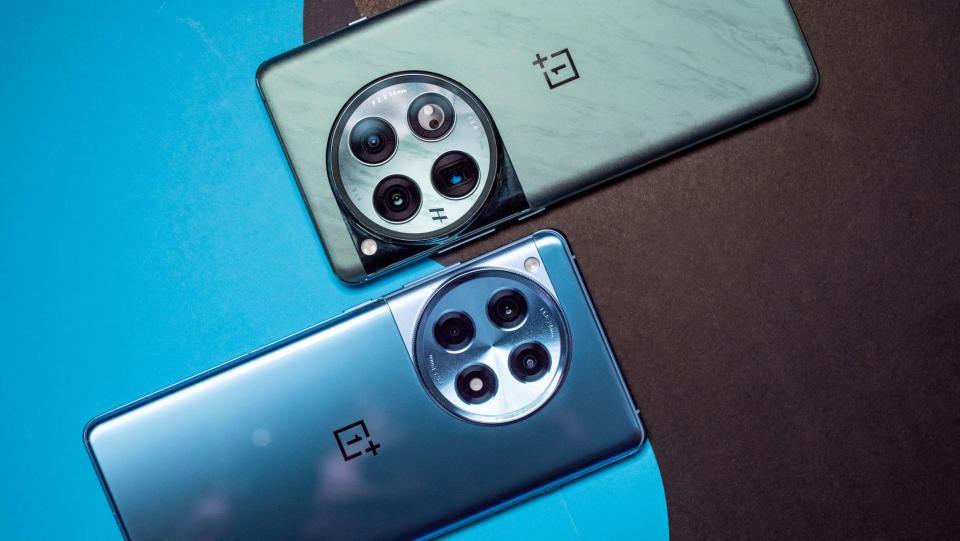
OnePlus did a terrific job with the design of the OnePlus 12, and the 12R retains the same aesthetic. What's interesting this time is that you don't miss out when it comes to build quality; the OnePlus 12R has a glass back with a glossy coat, and there's an aluminum mid-frame that has a matte texture. In short, it feels just as upmarket as the OnePlus 12.
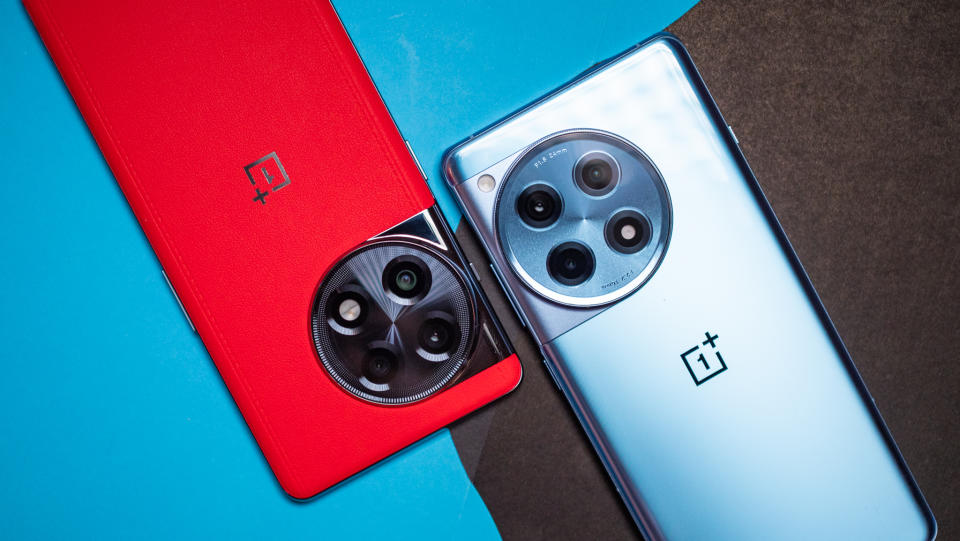
The defining design feature is the camera island at the back, and OnePlus went with the same style as last year, but with a few welcome tweaks — the housing is the same color as the back, and you get the same reflective pattern underneath the glass that makes the cameras stand out. But the best part is that there's a grooved pattern on the outside of the camera island, and this gives the phone a lot of added flair — it is similar to what you get on the Xiaomi 13 Ultra and Find X7 Ultra.
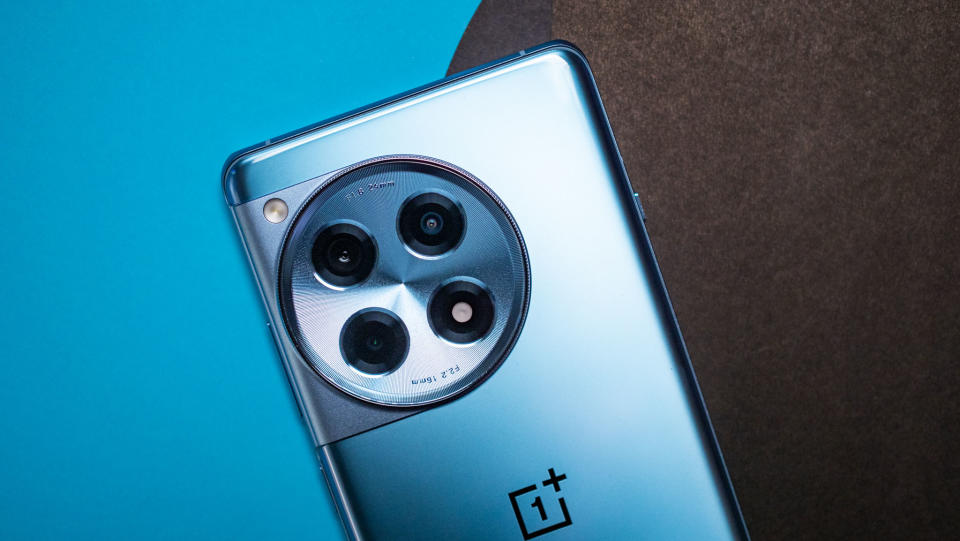
What you won't find is a Hasselblad logo, and that's because the 12R doesn't benefit from the phone manufacturer's collaboration with the Swedish camera giant. That said, it still manages to take fabulous shots in any situation. But more on that later.
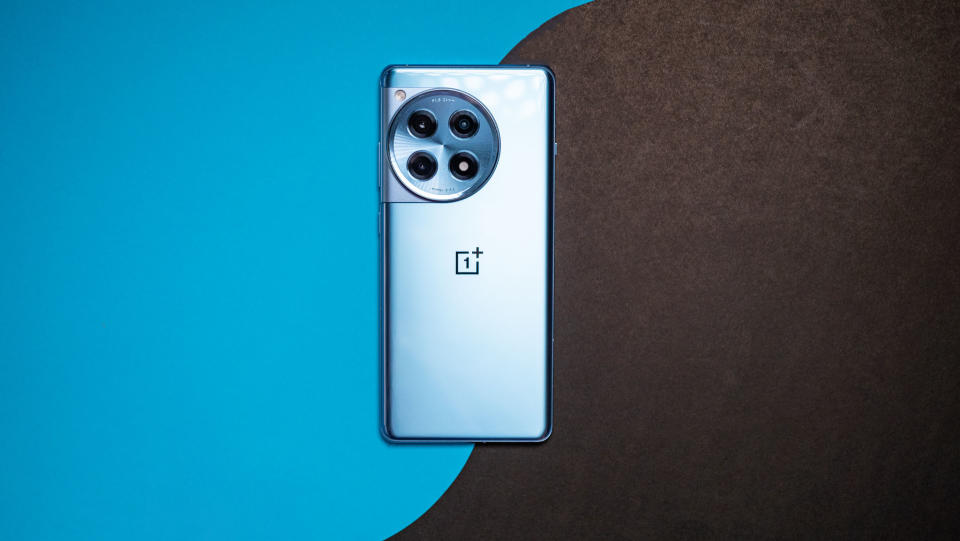
I would have liked a matte texture to go with the fabulous Cool Blue color option, but that isn't the case; if you need a matte back, you'll need to get the Iron Grey model. That said, I'm glad the 12R has matte sides, as it makes using holding and using the phone that little bit easier. The phone has flowing curves at the front and back, and at 207g, it is considerably lighter than the OnePlus 12 even though it's housing a 5500mAh battery — the largest yet on a OnePlus phone.
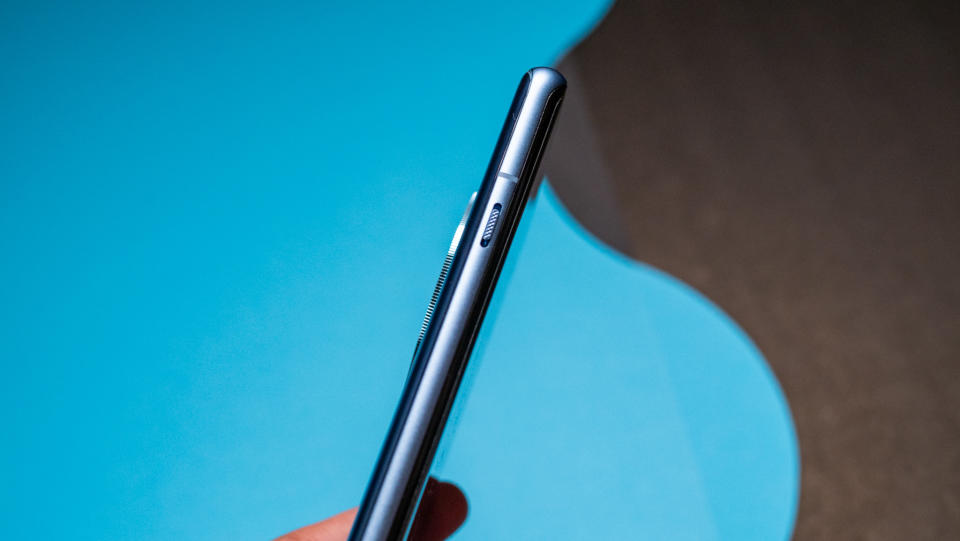
The alert slider has been moved to the left to make way for a better antennae design that delivers a stronger signal, and while I didn't see a difference in connectivity over the OnePlus 11R, I like the alert slider is intact; it continues to be one of the most useful features on a OnePlus phone.
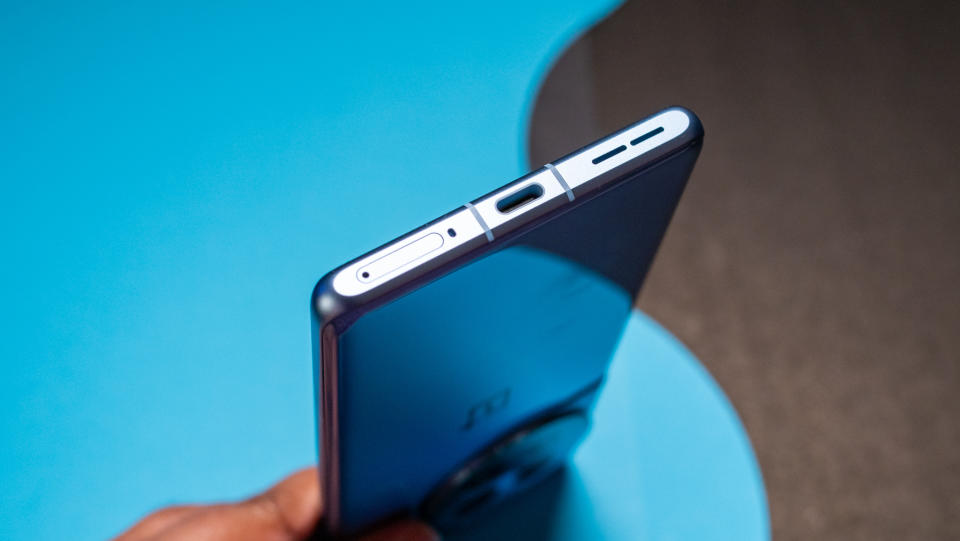
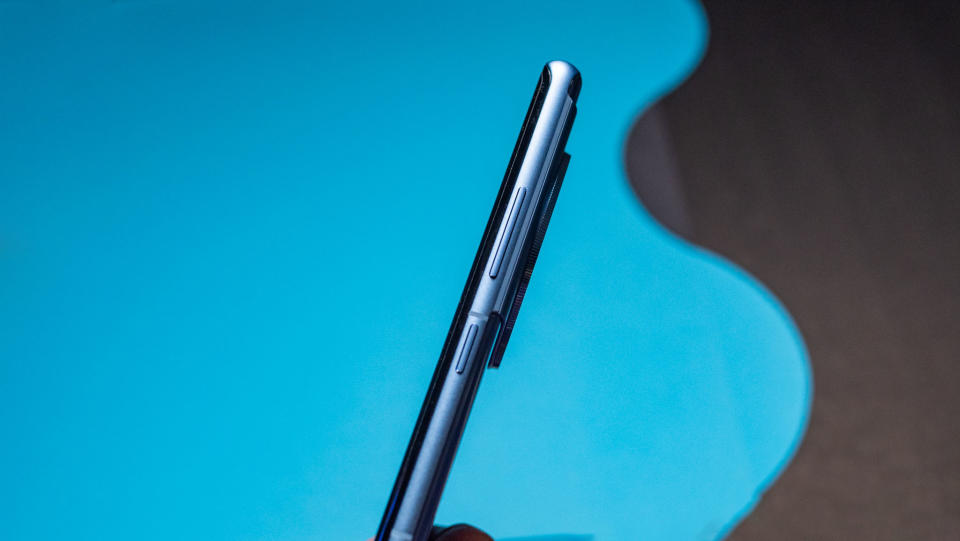
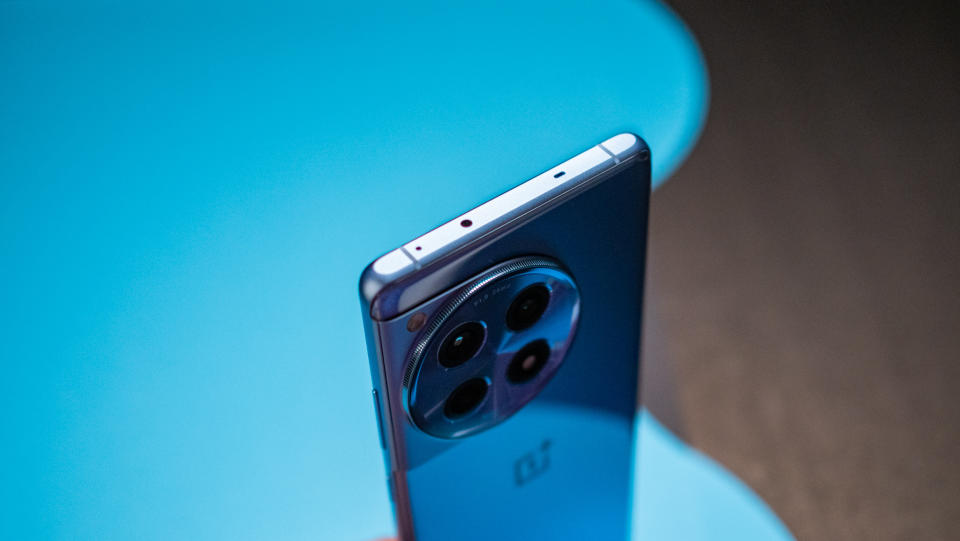
There's IP65 dust and water resistance, and again, while IP68 would have made the device much more enticing, I'm glad there's some level of ingress protection on offer. There's an IR blaster as well, and it's a nifty addition if you have a lot of products in your house that rely on a line-of-sight IR remote.
Overall, the OnePlus 12R ticks all the right boxes in terms of the design. It looks every bit as premium as the OnePlus 12, and I think this is the best-looking mid-range phone you can buy today.
OnePlus 12R: Display
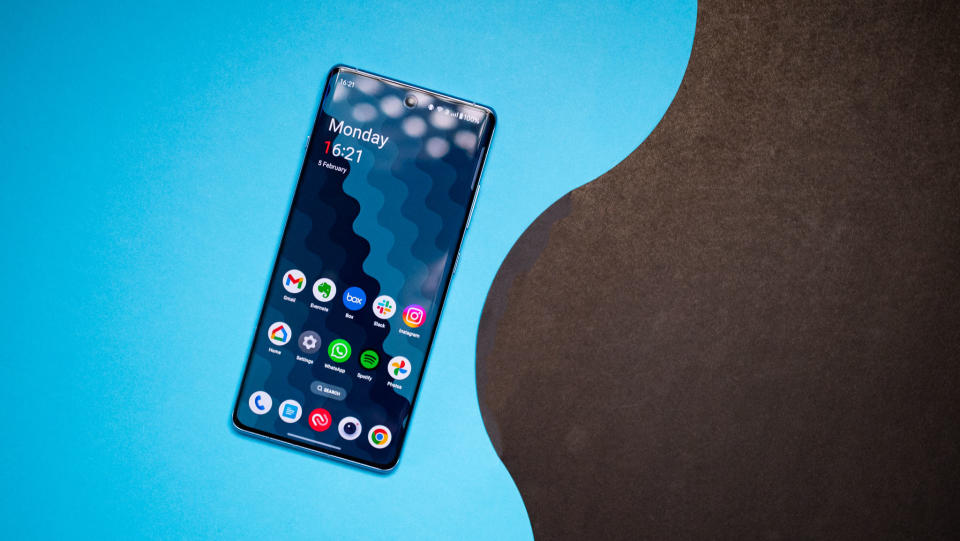
The OnePlus 12 has a ridiculous AMOLED display that goes up to 4,500 nits, and the OnePlus 12R gets the same panel. You get the same 6.78-inch screen with 120Hz refresh rate, and it goes up to 1,600 nits in high brightness mode and 4,500 nits while viewing HDR content. That said, the panel didn't get quite as bright when viewed next to the OnePlus 12, but it is still a significant upgrade over what we got last year.
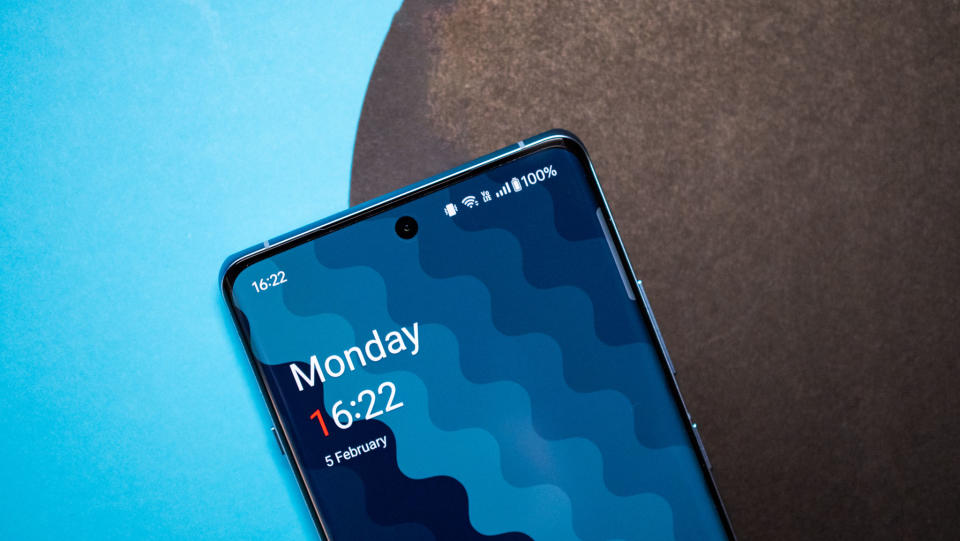
Oh, and the OnePlus 12R gets LTPO4 tech as well, dynamically switching the refresh according to on-screen content. What I particularly like is that the cutout is now centered — this was an annoyance on the 11R, so it's good to see OnePlus rectify the issue. The device has vibrant colors out of the box, excellent outdoor visibility, and plenty of customizability. OnePlus has a good range of always-on styles, and you can select what shows up on the lock screen.
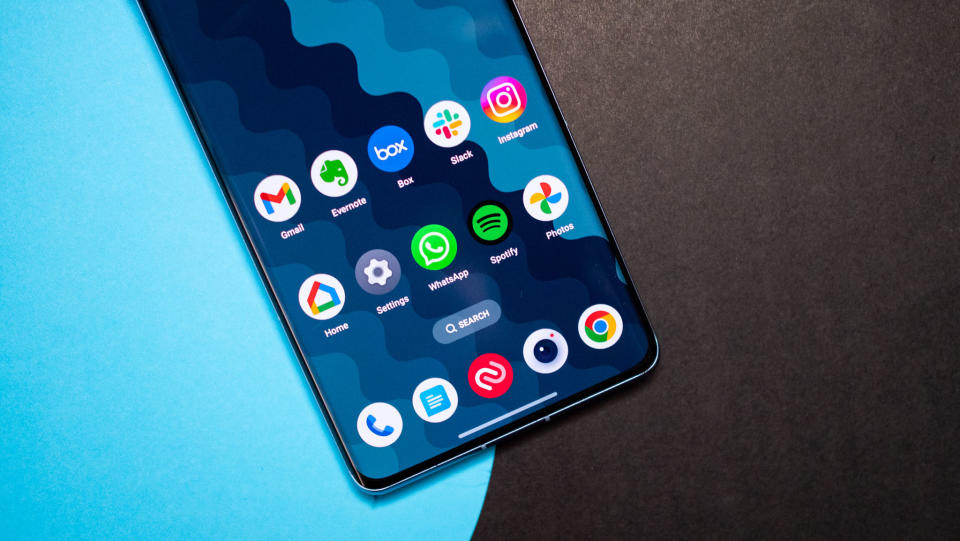
The only quibble is that the phone doesn't go beyond 60fps in any game. That's still limited to the OnePlus 12 — thanks to the Pixelworks X7 chip — and because it isn't available here, you miss out. That said, I've been using the OnePlus 12 for just over three weeks now, and none of the games I played went beyond 60fps either, so you're not really missing out on much.
This is a limitation on the software side, and it is done to ensure the phone doesn't overheat. I still think this is an asinine move considering the caliber of the hardware on offer, but it isn't likely to change. Other than the limitation, gaming is fluid, and the phone has more than adequate power to run demanding titles.
You don't miss out on the extras; it has the same Gorilla Glass Victus 2 as the standard version, and while the resolution isn't as high (2780 x 1264), it is still more than adequate. And the new Aqua Touch feature that debuted on the OnePlus is available here as well.
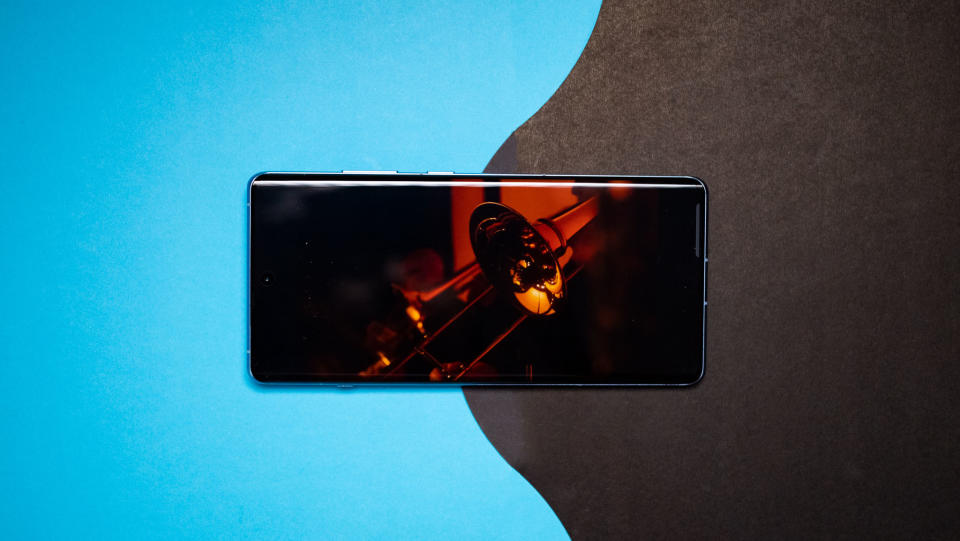
There's stereo sound too, and it gets loud enough when playing games and streaming content. The in-screen optical sensor is fast to authenticate and reliable, and the only issue I have with it is that it now sits a little too high on the screen. Previous devices had the sensor located too low, and OnePlus course-corrected a little too well, and it's once again awkward to access it with your thumb.
But as shortcomings go, this is pretty minor. On the whole, there are considerable upgrades to be had in this area, and you're getting what is one of the best panels in this category.
PWM measurements
Section written by Nicholas Sutrich
Like the OnePlus 12, the OnePlus 12R utilizes a brand-new BOE OLED panel capable of extremely high nits and a high PWM rate. Unlike the OnePlus 12, however, the OnePlus 12R doesn't offer a DC-like dimming option. Instead, it uses Pulse Width Modulation (PWM dimming) at all brightness levels.
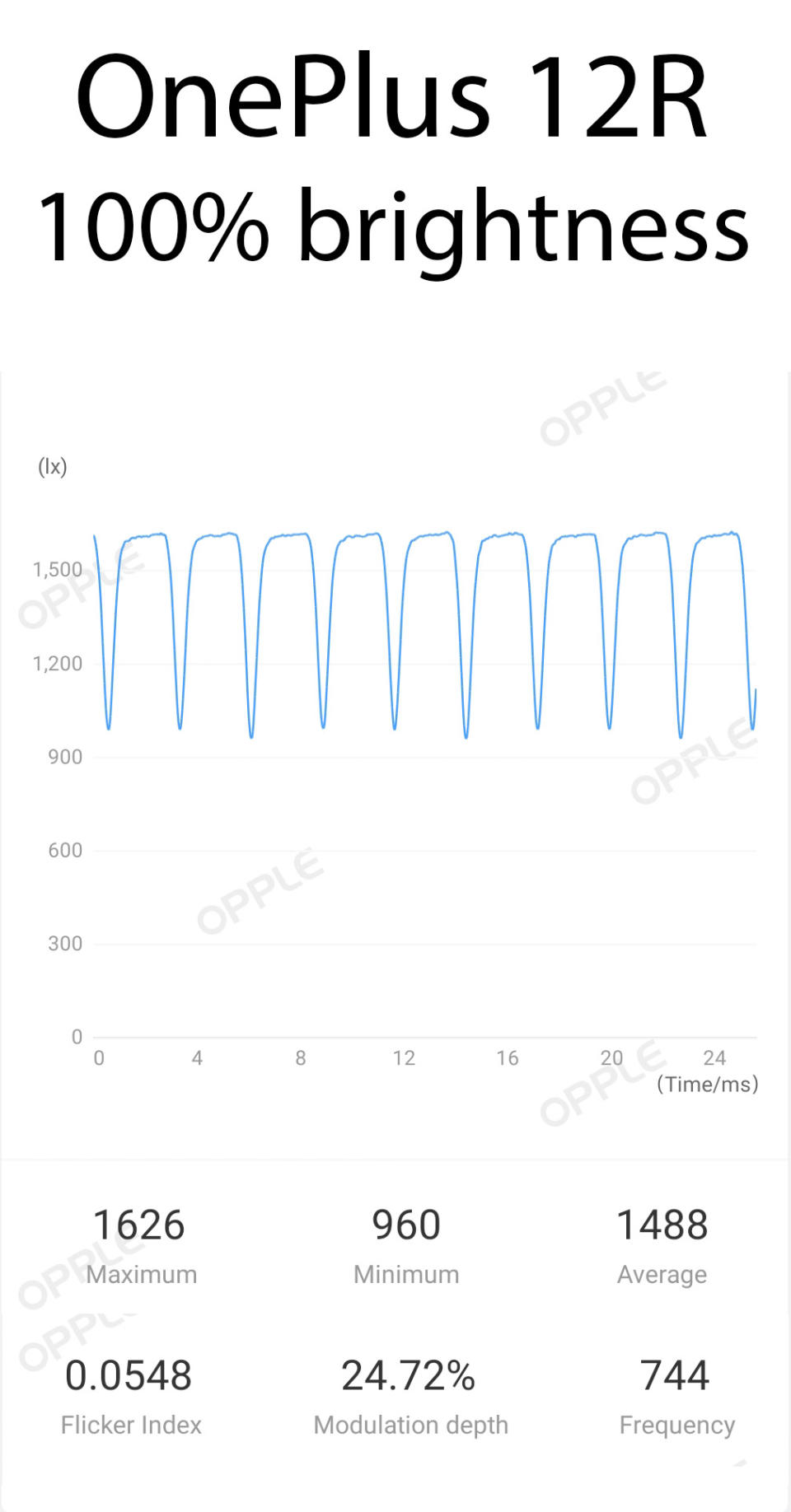
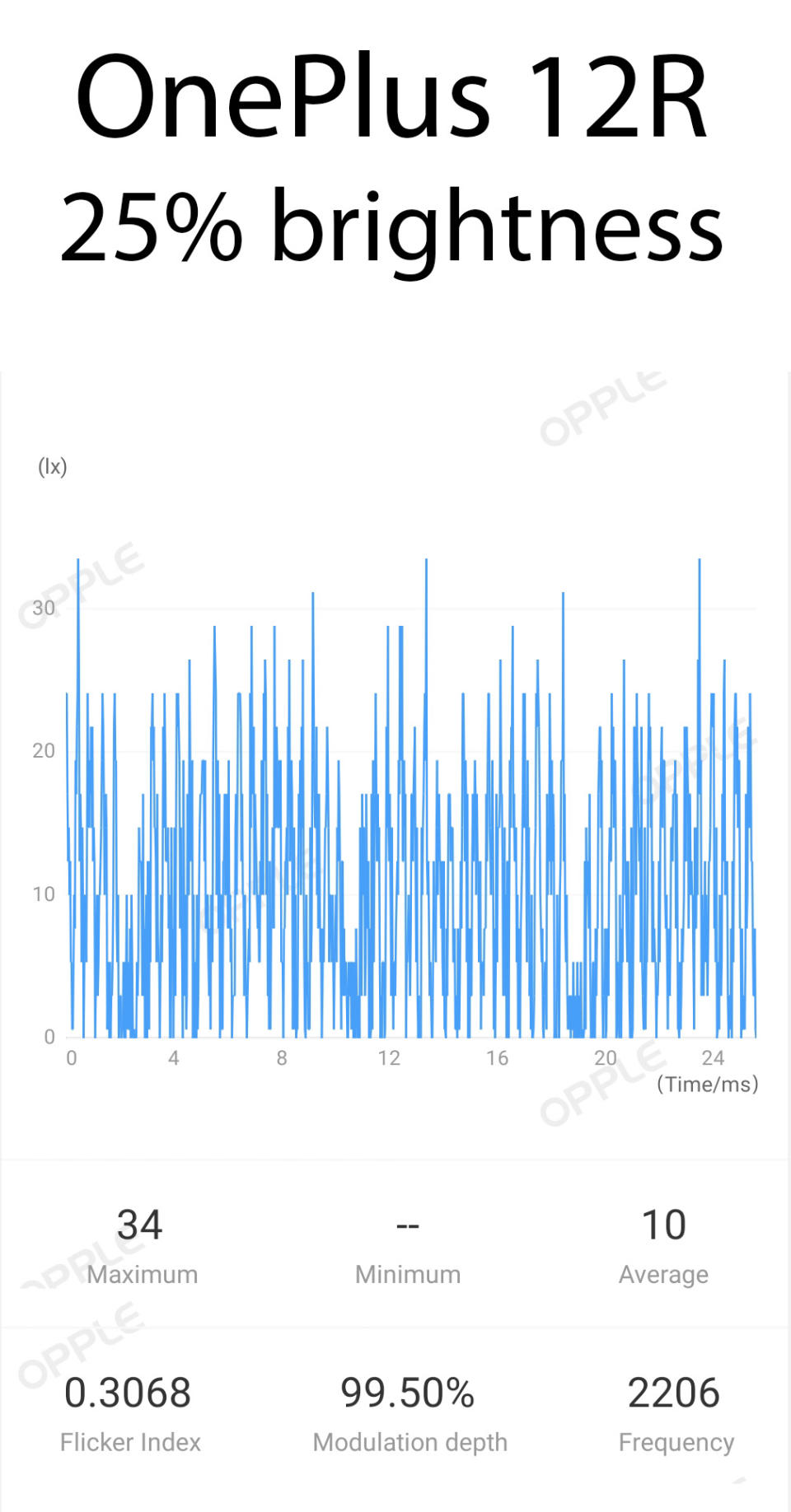
At brightness levels roughly above 25% on the brightness slider, you'll find the phone uses a 720Hz PWM rate with decent modulation rates. This means the extreme difference between the screen's on/off flashing typically stays under 30% which is better than many other phones that use PWM to manage brightness on OLED panels.
Below 25%, the panel switches to an ultra-fast 2,160Hz PWM rate to help mitigate the effects of higher modulation rates.
Since PWM dimming uses flickering to trick your eyes into "seeing" a brighter or dimmer panel depending on how often the screen is off per cycle, it's important to flicker more quickly at low brightness levels. Otherwise, the difference between the screen's on and off periods appears extreme and can cause severe headaches or eye ache.
OnePlus 12R: Performance and battery
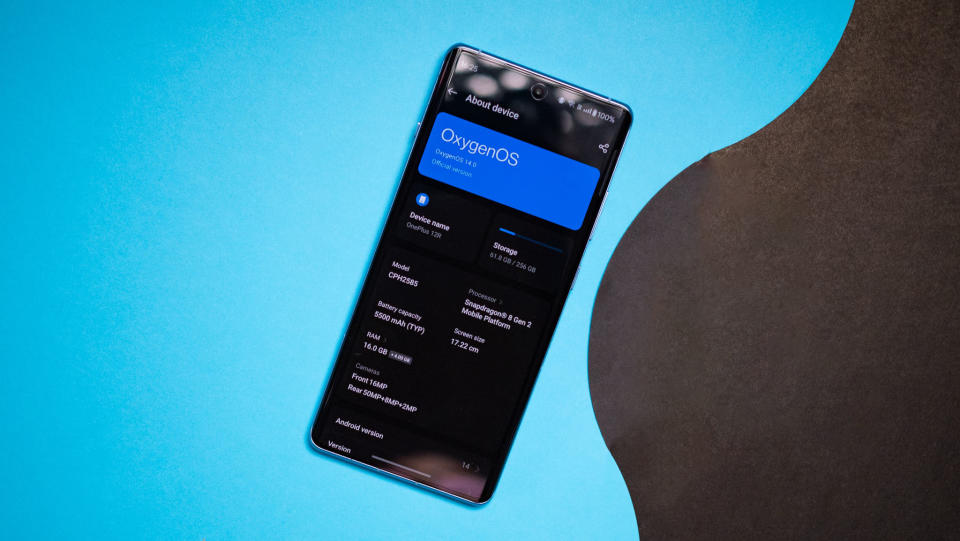
The OnePlus 12R doesn't have the absolute latest silicon, with the phone instead powered by last year's Snapdragon 8 Gen 2. That said, it is just as fast and fluid as the OnePlus 12, and I didn't see any difference when using the phones next to each other. It holds up just as well in visually-intensive games as well, and I didn't see much in the way of throttling with extended gaming sessions.
There are no issues in daily use, and I didn't run into any lag or slowdowns. While the hardware is a year old, it still has more than enough power to run any game at its maximum settings without any noticeable jitter, and just like the OnePlus 12, the 12R has excellent thermal management. I didn't notice much in the way of overheating on the device even after an hour's worth of gaming, and while I'm miffed about the lack of 120fps gaming, there are no issues otherwise.
The OnePlus 12 posted an abnormally low score in Geekbench 6.0 single-core workloads, so much so that the 12R is ahead of it. That said, there is a wider delta when it comes to the 3DMark tests, and even the browser-based JetStream test.
The OnePlus 12R had a stability score of 76.2% in 3DMark's Solar Bay stress test, and that bests what the regular OnePlus 12 managed. The device got warmer than the standard model at 43 degrees Celsius (versus 40 degrees), but it wasn't uncomfortable.
There isn't much missing on the connectivity side of things; you get a Wi-Fi 7 modem along with Bluetooth 5.3, AptX HD, NFC, and dual-band GPS. The only limitation is that the USB-C port at the bottom is based on the older USB 2.0 standard, so it isn't quite as useful as the OnePlus 12 if you want to connect the device to an external monitor.
The haptic motor is good as well, and while it doesn't quite deliver the same intensity of feedback as the standard OnePlus 12, it holds up well in daily use. I would've liked to see 256GB of storage as standard, but most mid-range phones still come with 128GB of base storage, and unlike the Pixel 7a, there's at least a variant with 256GB of storage available.

A big differentiator this year is the battery; the OnePlus 12R has a gigantic 5500mAh battery that manages to last well over a day and a half consistently. In the week that I used the phone, I charged it thrice in total, and even with heavy use, the device lasts more than a day without any issues whatsoever. This is the largest battery yet on a OnePlus phone, and it absolutely makes a difference.
There's good news on the charging side as well, with the device offering the same 100W charging tech as the best OnePlus phones. It takes just over 33 minutes to charge the phone, and it gets to the 50% mark in under 14 minutes. The 100W charging tech means you don't really need to leave the phone plugged in overnight, and because of the battery longevity, I ended up charging it in 30-minute chunks every alternate day.
The only omission here is wireless charging, but that's understandable considering the segment the device is targeting. What's great is that you get a 100W charger bundled in the box, and while it is large and bulky, it does a phenomenal job charging the device.
OnePlus 12R: Cameras
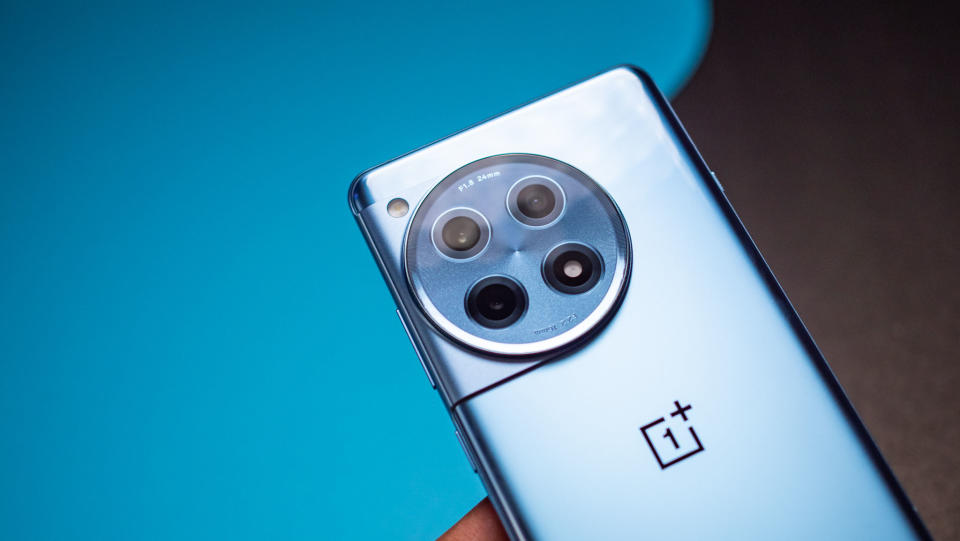
The OnePlus 12R uses the same 50MP f/1.8 Sony IMX890 camera module as its predecessor, and like last year, you get OIS. The other cameras are unchanged as well, and there's an 8MP wide-angle lens with a 112-degree field-of-view and a 2MP macro lens. Up front, you get a 16MP camera that is (once again) identical to last year.
In addition to the same hardware, the 12R carries over the same limitations; 4K video recording is exclusive to the main camera, and the wide-angle lens is strictly average for photos and not worth the hassle when it comes to videos. Then there's the 2MP macro lens — I don't understand why this thing even exists, as it doesn't actually contribute anything of utility.
The camera interface is identical to last year, and you get the shooting modes along with the various toggles. There's no zoom lens on the device, but the main camera takes decent enough shots at 2x, and while it goes up to 20x digitally, you're not getting usable photos at that level.
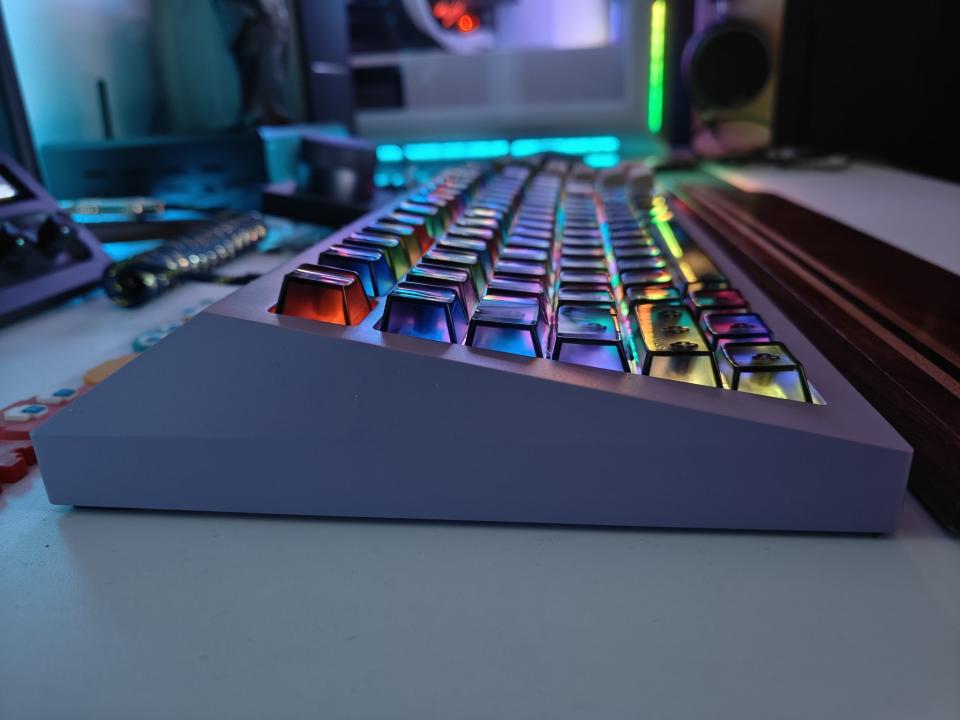
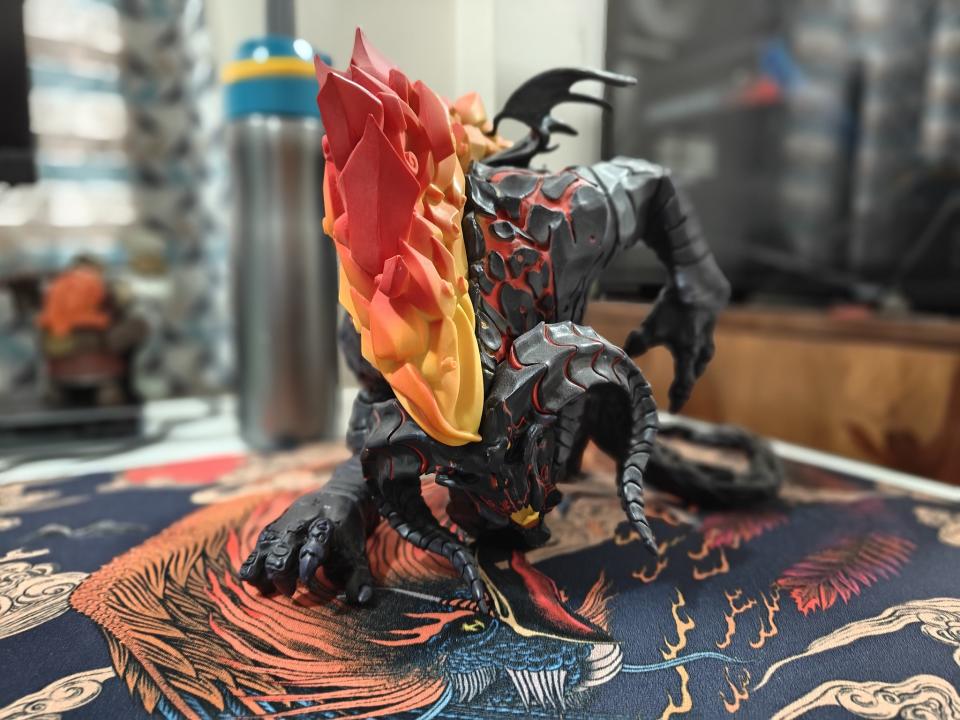
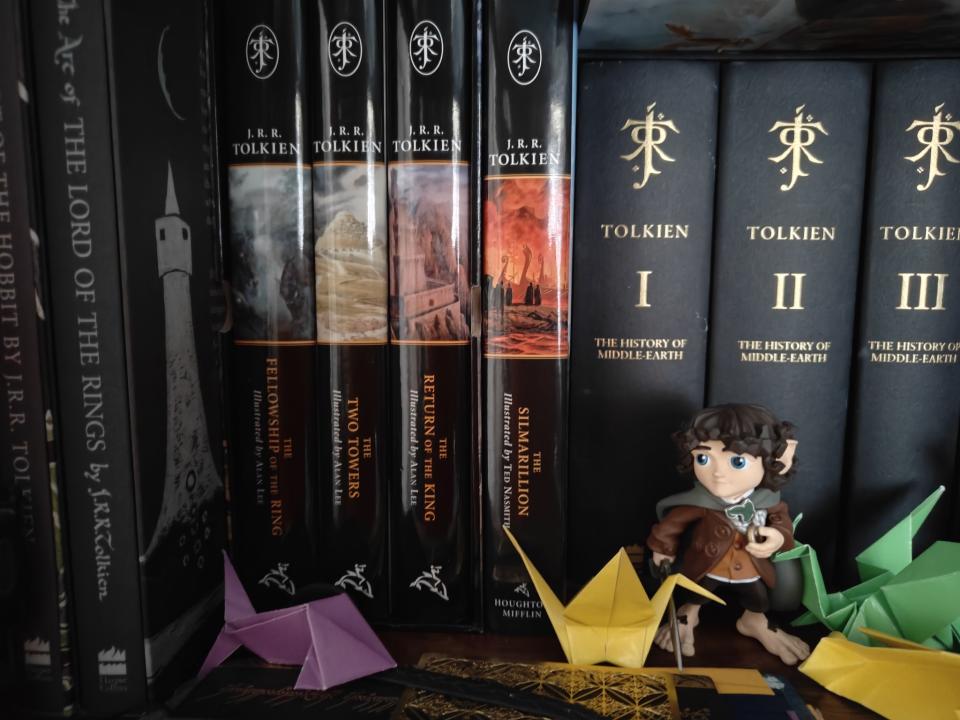
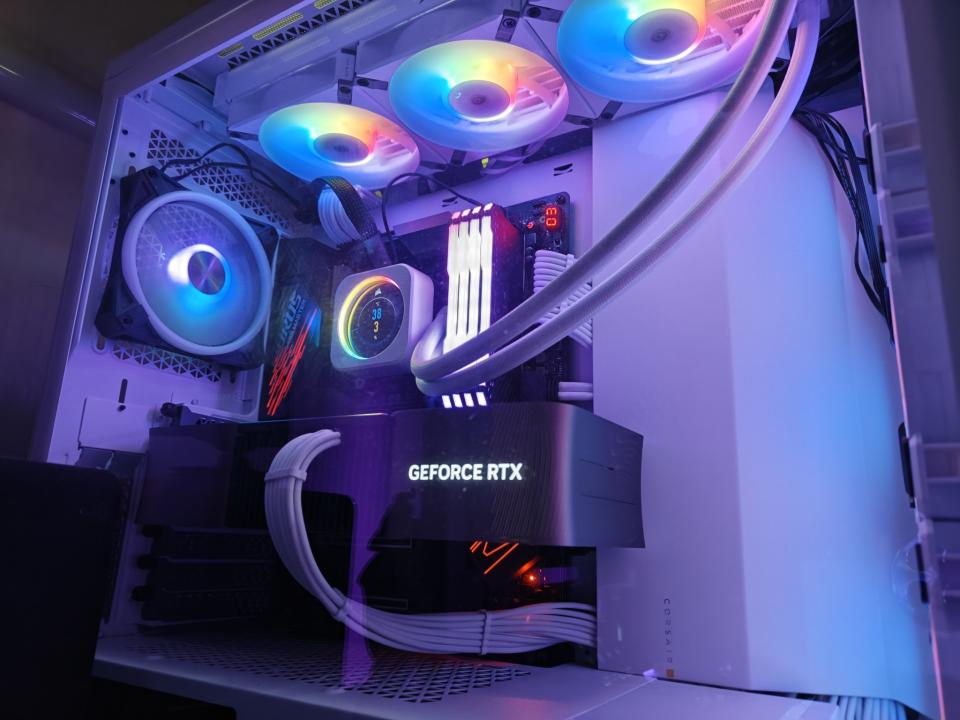
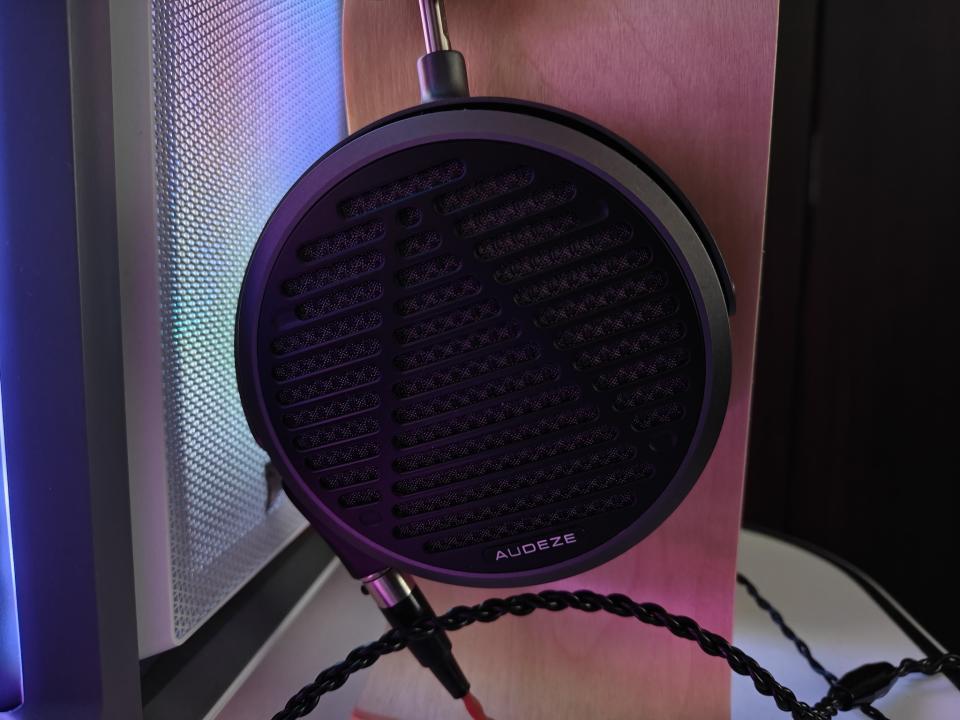
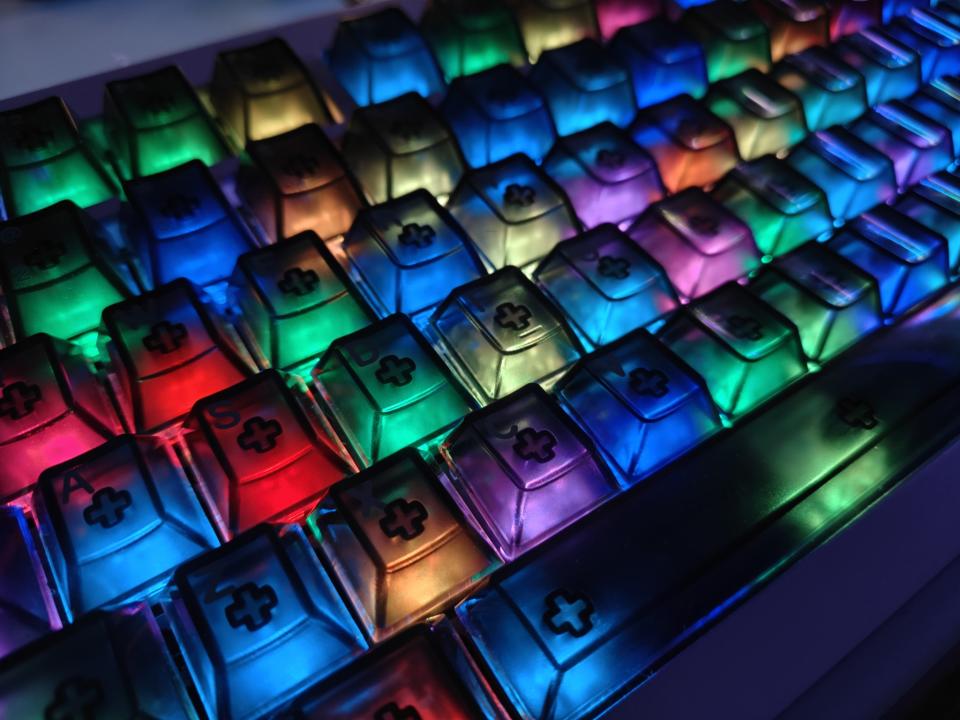
While the cameras are unchanged, OnePlus tweaked the tuning of the sensors, and the result is that the 12R takes noticeably better photos than last year. OnePlus basically took a leaf out of Samsung's playbook, and the main camera is close to the OnePlus 12 — no small feat.
The OnePlus 12R does an outstanding job in daylight scenarios, holding up to the standard OnePlus 12. You get accurate color rendition, plenty of detail, and dynamic range that's among the best in this segment. The IMX890 is several years old at this point, but it still manages to deliver outstanding photos; this goes to show that a reliable sensor with custom tuning can be just as good as a brand-new module.
You get great photos in low-light situations as well, with the phone able to minimize noise levels while ensuring colors are still vibrant. If anything, the phone is among the best in this category at low-light shots, and while the Pixel 7a manages to eke out slightly better shots, the difference is nearly negligible.
The 2x lens on the 12R is a digital crop of the photo taken by the main camera, and although you don't get a dedicated zoom lens, the phone manages to take decent enough shots at this zoom factor. But go up to 5x and you start seeing a lot of artifacting, and anything beyond that isn't worth the effort.
Portrait shots are fantastic this time around as well, and they're just as good as what you get on any flagship today. The 12R does a great job with background segmentation when taking photos of inanimate objects, and that wasn't the case in previous years.
While the main camera is on par with the OnePlus 12, the same isn't true of the wide-angle lens. Even in daylight situations, colors look washed out, there is aggressive smoothening with foliage, and you don't quite get the same level of detail.
It's annoying that the auxiliary lenses still aren't up to scratch, but what you'll like is that the main camera is easily one of the best in this category. It takes fantastic photos and videos in challenging situations, and OnePlus outdid itself with the tuning.
OnePlus 12R: Software
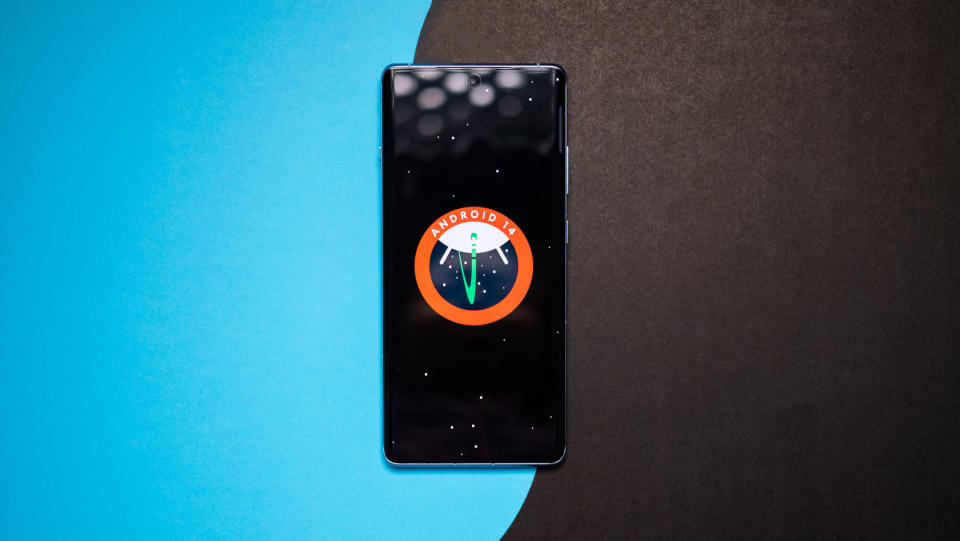
I won't talk too much about the software as the OnePlus 12R is identical to the standard OnePlus 12 in this regard. The phone runs OxygenOS 14 based on Android 14 out of the box, and you don't get many new features. There are a few bugs at launch, but these are likely to be ironed out a few weeks after the phone goes on sale.
There's no overarching AI strategy, and that's a good thing. What you do get is a modern interface that has plenty of customizability. It isn't as clean as the Pixel Launcher, but there isn't a lot of bloatware, and it is fluid in daily use. Even if you don't like the new OxygenOS avatar, there is a lot to like here, and it is stable at launch — which wasn't the case in the last two years.
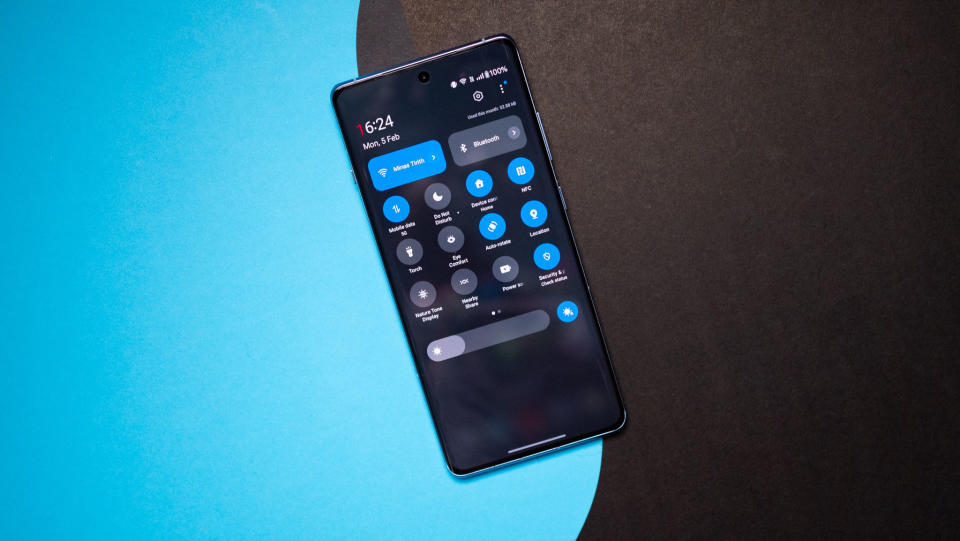
As for software updates, the OnePlus 12R will get three Android OS updates along with four years of security updates, and this is one less than what you get on the standard OnePlus 12. That's not a huge issue considering the segment the OnePlus 12R is targeting, but OnePlus hasn't done a particularly good job rolling out updates on time, and that needs to change.
OnePlus 12R: The competition
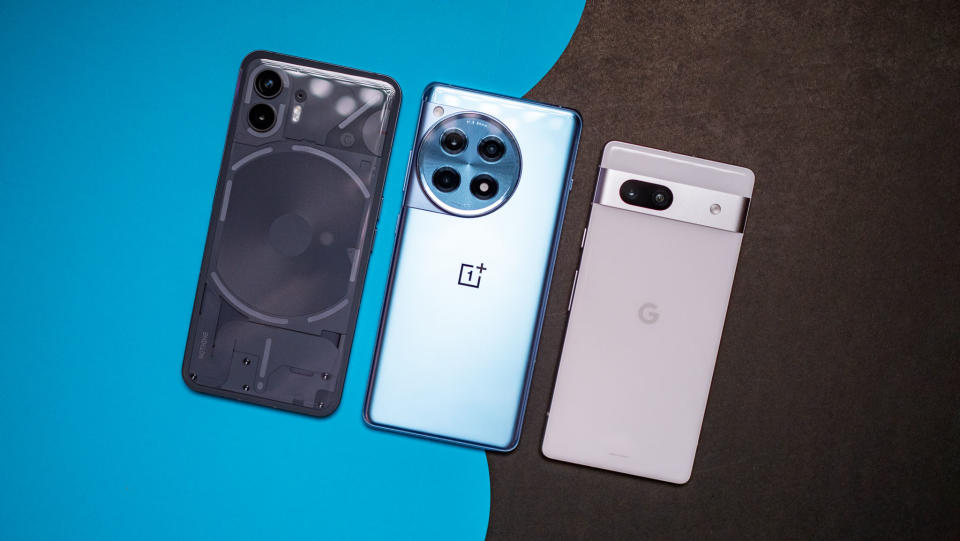
I consider the Pixel 7a as the yardstick in the mid-range segment, and while it still has the edge when it comes to the cameras, it is lacking in other areas. The screen isn't anywhere as good as the OnePlus 12R, and the hardware doesn't measure up — particularly if you play a lot of games. The battery doesn't last as long either, and the charging is pitifully slow at 18W — and you'll need to buy a charger. Yes, I like the software on the Pixel 7a a lot more, but I'll admit that as an overall package, the OnePlus 12R gives you a lot more.
Nothing's Phone (2) is also a decent contender in this category. I really like the design aesthetic of the device, and while its cameras aren't as good as the OnePlus 12R, the design and unique software interface have plenty of takers. It falls behind on the charging and battery side of things as well, and it will get the same number of updates. If you don't like the look of OxygenOS, you should consider the Phone (2), but otherwise, the 12R is a better bet.
OnePlus 12R: Should you buy it?
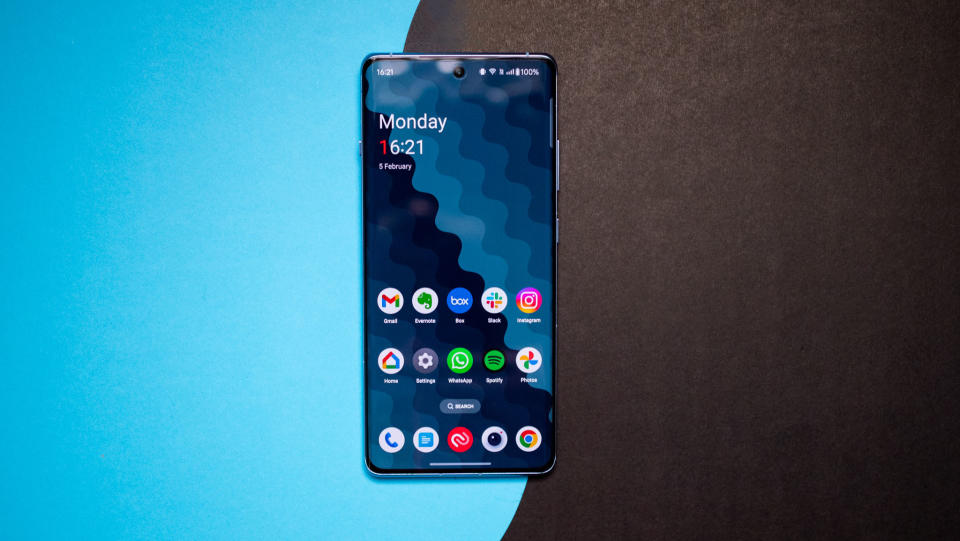
You should buy this if:
You need a phone with a bright AMOLED screen
You want two-day battery life and 100W charging tech
You need a phone that can play the latest games
You need a device that can take great photos
You want the best value in this segment
You shouldn't buy this if:
You need wireless charging
You want strong auxiliary cameras
You want to play games at 120fps
You want the same number of software updates as OnePlus 12
Like last year, OnePlus did a fantastic job delivering the best features of its flagship into a much more affordable package. But what makes the OnePlus 12R even better is that it is now available globally, and that has the potential to disrupt the mid-range category. The way I see it, the phone is an updated variant of the OnePlus 11 with a better display, enhanced camera tuning, and larger battery.
That is a potent combination in and of itself, and you also get a gorgeous design, ultra-fast charging tech, and an unmatched value in the mid-range segment. Yes, the phone won't get as many software updates as the OnePlus 12, but it will still pick up three platform updates, and that's on par with its immediate rivals.
Ultimately, you're getting a phone with a great design, terrific internals, standout camera, and the best battery life in this category. The fact that all of this costs just $499 makes the OnePlus 12R the bargain of 2024.
